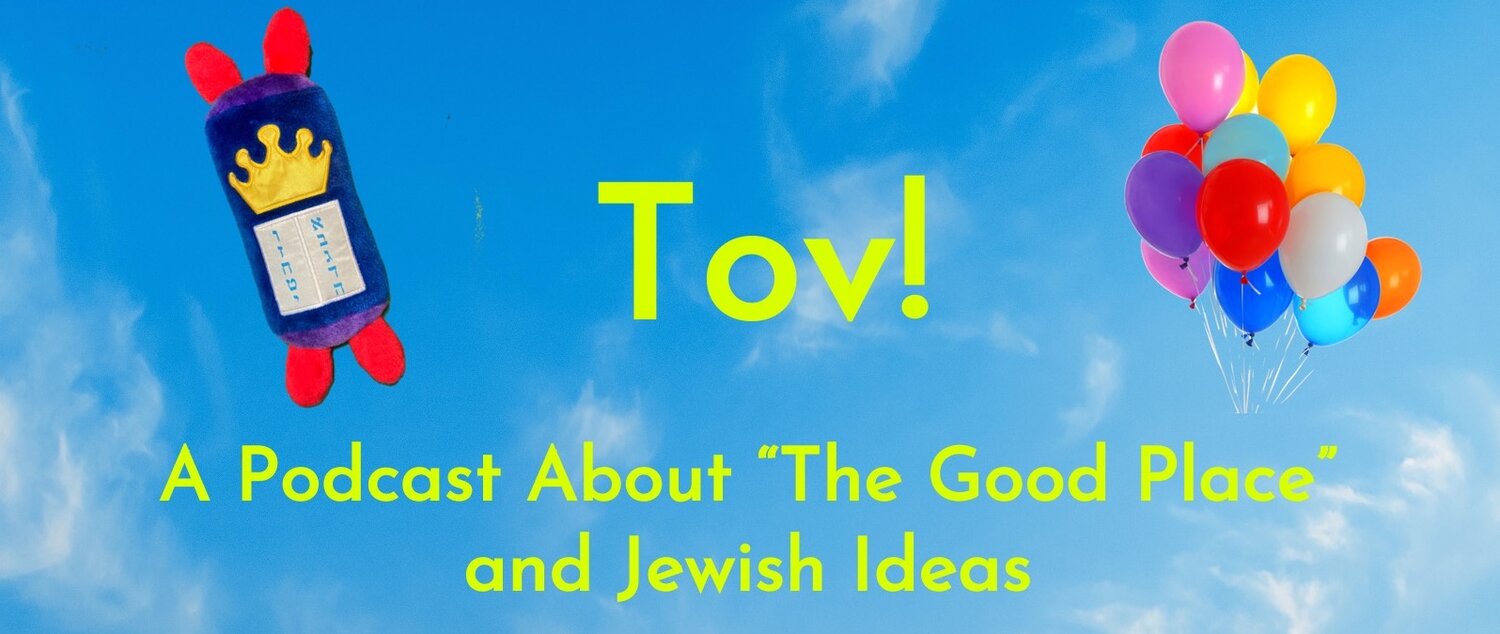Chapter 20: Because Friends — And Lying Reframed
On “The Good Place”, Janet’s glitching prompts Michael and Janet to talk about the lies at the beginning of their relationship and now, and Michael realizes that they are friends. On the podcast, Myra and Ben and Jon overinterpret paper clips. Then they look for a broader view of lying and truth-telling, and discuss how friendship relates to speaking in error and learning truth.
Texts
(The links here in the citations take you to the specific quotes in their full source contexts. Go to Jewish Lexicon on this site for more on Jewish terminology, names of texts and other background.)
Text: Babylonian Talmud, Ketubot 16b-17a
(As was mentioned when we discussed this text in Chapter 7, the source here is both sexist and ableist; many have been able to take it out of its original framework as we hope we have.)
The Sages learned: How does one sing while dancing in front of the bride? Beit Shammai say: The bride as she is, and Beit Hillel say: “A beautiful and devoted/pious bride.” Beit Shammai said to Beit Hillel: If the bride was lame or blind, would one say to her: “A beautiful and devoted/pious bride”? Rather the Torah states: “Keep far from a false word” (Exodus 23:7). Beit Hillel said to Beit Shammai: According to your statement, with regard to one who acquired an inferior item from the market, should another praise it for his eyes or denigrate it in his eyes? You must say that he should praise it in his eyes. From here the Sages said: A person’s disposition should always be interwoven with fellow creatures/humanity.
Mishnah Pirkei Avot 1:6
Yehoshua ben Perachia says: Make for yourself a rabbi/teacher, acquire for yourself a friend, and judge each person with the benefit of the doubt/with a finger on the scale of positive judgment.
Avot D’Rabbi Natan 8:1 (slightly different edition than quoted on the podcast)
“Acquire for yourself a friend” How? This teaches that one acquires a person as a friend for themselves when they eat with them and drink with them and study with them. When you learn Torah when they learn Torah and Mishnah when they learn Mishnah and then sleep when they sleep. And when one shares in the mystery with them: those of Torah and those of the world.
When friends like these learn Torah together, if one of them errs in a matter of halacha or becomes confused in the order of their learning or if they pronounce the impure as pure or the pure as impure of the forbidden as permitted or the permitted as forbidden: one friend will bring the other back. And from where do we learn that when one friend brings the other back and studies with them again there is a good reward for all their toils? As it is written:“Two are better than one; they have a good reward for all their toil (Ecclesiastes/Kohelet 4:9).”
Links:
The Paper Clips Project — school children in a small town learn about the Holocaust and use paper clips to grasp the number six million
Learn more about Jon, Myra, and Ben on our Hosts page!

